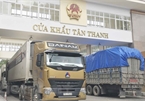 |
|
Nguyen Dinh Cung, former head of the Central Institute for Economic Management
|
What are your preliminary assessments about the implications of nCoV on Vietnam’s economy?
The new coronavirus outbreak was declared a global public health emergency by the World Health Organization as the outbreak continues to spread outside China. Besides impacts in health aspects, it surely casts no minor impacts on the world economy as well as the global trade.
Having an open economy that is highly connected to global markets and heavily reliant on China, Vietnam will surely feel the brunt with certain implications on the local economy, both directly and indirectly.
What fields and sectors could be most affected?
The tourism industry would bear direct implications. Chinese visitors to Vietnam will take a nosedive from several millions to an insignificant level. In addition, visitors from other countries might also experience a remarkable decline.
It is noteworthy that dwindling tourism will result in down-scaling and lower growth of relevant industries such as transport, travel services, and wholesale and retail, among others.
Of them, transport and travel industries, and food services would be hardest hit. As of now, transport and logistics contribute nearly 3 per cent of the GDP and 0.22 to 0.25 percentage points to GDP growth; meanwhile travel services contribute nearly 4 per cent of GDP and about 0.25-0.3 percentage points to GDP growth. If these two industries tumbled, the economy could be significantly affected.
Second, exports are forecast to go down due to lower import demands and reduced cross-border transactions with China, particularly export of agricultural products to avoid the spread of epidemic. In fact, most export agricultural products are bound for the Chinese market. The decline, therefore, will have detrimental impacts on local agricultural production, particularly seasonal fruit and vegetables.
Currently the agriculture, forestry, and fishery sector contributes about 14 per cent of GDP and about 0.5 percentage points to its growth.
What are the possible indirect implications?
The nCoV outbreak as it stands could cost losses amounting to $160 billion to global GDP, leading to dwindling export demands globally. As an export-oriented country, this would affect Vietnam’s export value.
The resulting consequences are difficulties in the production and trading of businesses, particularly those working in aforementioned fields.
This situation could affect investors’ sentiments, possibly leading to a bearish stock market as well as diminishing both direct and portfolio investment flow into the country.
What should we do to alleviate implications?
It is high time for the government and authorised management agencies to join forces and procure quick assessments of nCoV’s impact immediately as it links to socio-economic development management this year.
The Ministry of Culture, Sports and Tourism should co-ordinate with related ministries, agencies and localities, particularly those in tourism centres, to review and evaluate possible losses due to the outbreak, present remedial solutions, or recommend measures to help related industries recover business.
The Ministry of Agriculture and Rural Development must team up with the Ministry of Industry and Trade (MoIT) and relevant localities to review and evaluate loss levels of agricultural product export to China, what areas and who have suffered losses, and propose measures to support businesses and farmers who suffer. It is also important to bolster domestic demands.
The MoIT also should preside over and co-operate with relevant ministries and agencies to oversee and continuously review import-export business, particularly key items with high export value and major markets; and timely identify and tackle difficulties businesses encounter in production, import-export activities, and logistics services.
Further, the Ministry of Planning and Investment, along with the Ministry of Finance, must jointly support ministries, sectors, and localities to facilitate evaluation and approval procedures, and ensure sufficient capital provision for investment projects. Delays in kicking-off large-scale and important infrastructure projects must be soon addressed, along with accelerating disbursement of public investment sources.
In addition, fiscal and monetary policies must be managed in a flexible manner, along with ensuring stability of the macro-economy. Simultaneously, the measures on reforming, improving business climate, and sharpening national competitiveness, particularly with the private sector, must be taken more speedily, on a bigger scale and on a more intensive level. VIR
Khanh An

Prolonged nCoV epidemic could affect budget revenue: MoF
If the 2019 novel coronavirus (2019-nCoV) epidemic lingers, production, trade and State budget revenue will be greatly affected, according to the Ministry of Finance (MoF).

Vietnam’s stock market overreact to nCoV outbreak
Chair of the State Securities Commission (SSC) Tran Van Dung commented that the investors have ‘overreacted’ to the nCoV outbreak, believing that the market will recover when the epidemic peaks, as it happened with SARS and H5N1.
 At this point of time, it might be impossible to fully gauge the implications of the novel coronavirus outbreak (nCoV) on the local economy.
At this point of time, it might be impossible to fully gauge the implications of the novel coronavirus outbreak (nCoV) on the local economy.